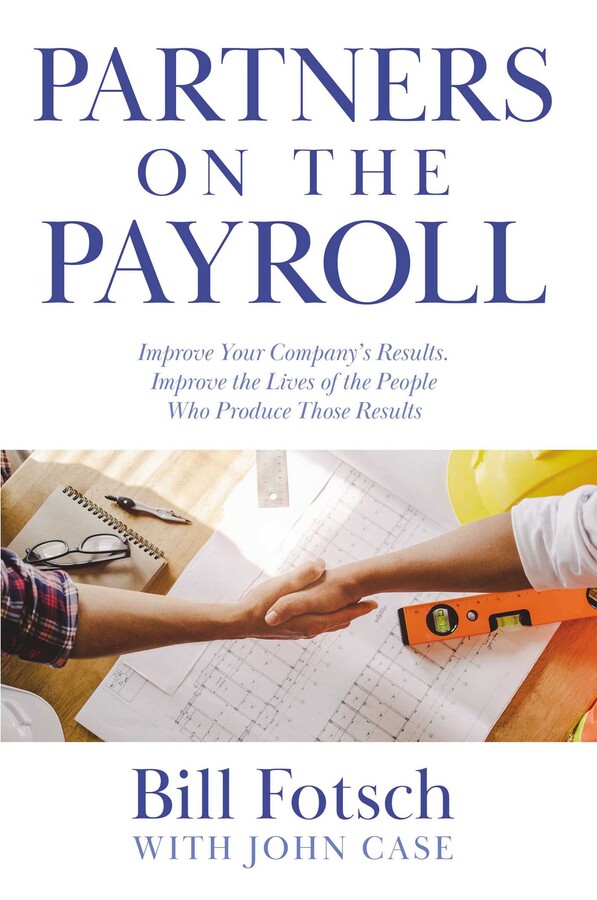
Publications
Partners on the Payroll wonderfully illustrates the value of all employees acting as committed and engaged owners. — Dan Mortensen, President and CEO, Virginia Council on Economic Education, Former executive, Capital One
Most entrepreneurs and executives would like their employees to feel engaged in the business, to go the extra mile, to think and act like owners. But they aren’t sure how to create such an environment.
That’s where Partners on the Payroll comes in. In this short but powerful book, veteran business coach Bill Fotsch shows how any business can transform its employees into full-scale partners—people who understand the business and work together to improve its performance. Readable and hard-hitting, this is the book for any owner or manager who wants to build not just a better business but a better world.
“More Than a Paycheck” (Harvard Business Review)
Fifty years ago a good blue-collar job was with a large manufacturer such as General Motors or Goodyear. Often unionized, it paid well, offered benefits, and was secure. But manufacturing employment has steadily declined, from about 25% of the U.S. labor force in 1970 to less than 10% today. Now a decent living entails more than a generous wage; it involves sharing the company’s success with employees.
Some companies offer a direct stake in the company’s performance through stock, a share in profits, or both. Companies with employee stock ownership plans report significantly higher sales growth and higher revenue per employee than do conventionally owned companies in the same industry. However, virtually all the gains to be had go to those that create an ownership culture, by building in participative management and helping employees learn to think and act like owners.
“Economic Engagement 2.0? It’s Called Economic Engagement” (Inc. Magazine)
Customer value is arguably the heartbeat of a company’s economic success. But it’s rarely recognized as such in the open-book conversation. That reflects something worth noting about OBM. Most of its principles remain essential–clarity around goals, transparency on performance, self-funded performance compensation, ongoing forecasting of results. But none of these refer to the financials. Each is driven by the day-to-day economic metrics that eventually impact financial results. That’s why engaging both employees and customers in driving the improved economics of the business is a natural evolution of OBM.




